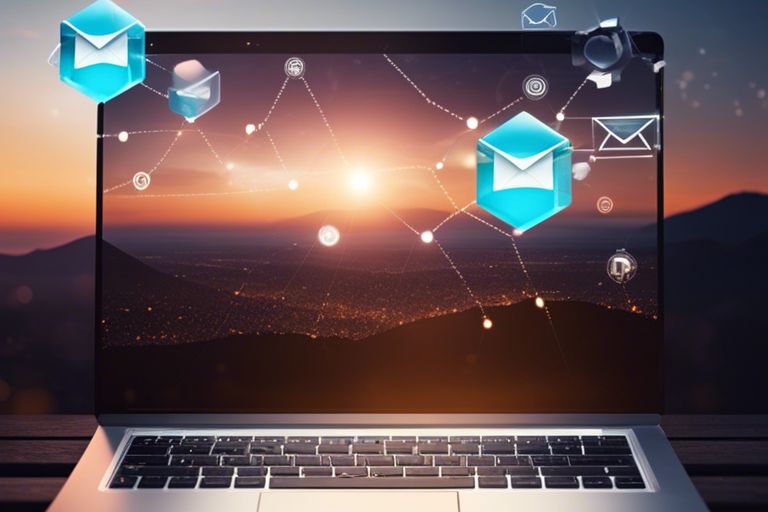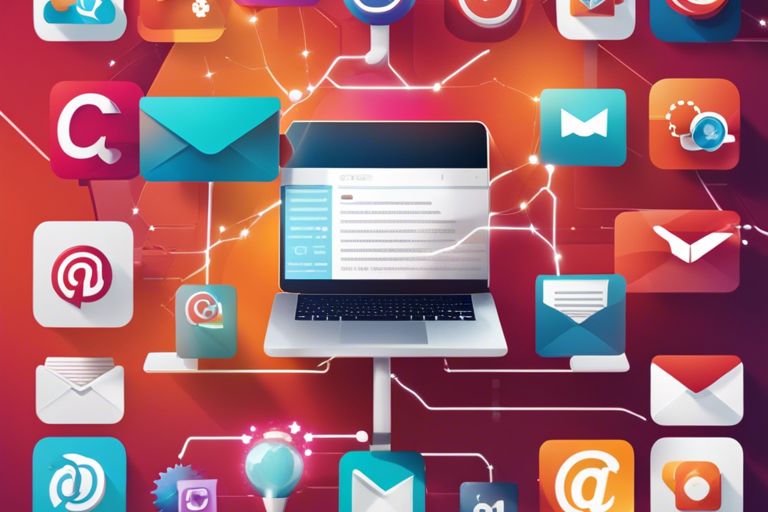Just as technology continues to advance and consumer behaviors evolve, the future of email marketing is at a crossroads. In this digital landscape where attention is scarce and competition is fierce, email marketers must adapt and innovate to stay ahead. Let’s explore into the trends and strategies that will shape the future of email marketing, and how businesses can leverage this powerful tool to engage and convert their audience effectively.

Key Takeaways:
- Email Personalization: Tailoring email content to individual recipients can significantly improve engagement and conversion rates.
- AI Integration: Implementing artificial intelligence in email marketing can automate processes, enhance segmentation, and deliver more relevant content to subscribers.
- Interactive Emails: Incorporating interactive elements like quizzes, polls, and surveys can boost subscriber engagement and provide valuable data for further customization.
In exploring the future of email marketing, it is evident that personalization, AI integration, and interactive elements hold the key to maximizing the impact of email campaigns. By honing in on these strategies, brands can forge stronger connections with their audience, increase ROI, and stay ahead in the ever-evolving digital landscape.
Evolution of Email Marketing
From Spam to Personalization
While email marketing started as a tool for mass communication, it quickly gained notoriety for being synonymous with spam. However, as technology advanced, marketers began harnessing the power of data and personalization to create targeted and relevant campaigns that resonated with recipients on a personal level.
Rise of Automation and AI
Rise. Automation and AI have revolutionized the way email marketing is approached. With the ability to analyze vast amounts of data in real-time, marketers can now automate campaign processes, segment audiences dynamically, and deliver highly personalized content at scale.
Plus, AI algorithms can predict consumer behavior, optimize send times, and even generate subject lines and content, resulting in higher engagement and conversion rates.
The Impact of Emerging Technologies
You, as an email marketer, are on the cusp of an exciting shift in the way we engage with customers. Emerging technologies are reshaping the landscape of email marketing, making it more dynamic and personalized than ever before. To probe deeper into this transformative era, check out The Future of Email Marketing.
Blockchain and Data Security
Data security is paramount in email marketing. With the rise of blockchain technology, marketers can ensure secure and transparent transactions, enhancing trust and integrity with their audience.
Virtual and Augmented Reality in Email
Security is a top concern in today’s digital landscape. Virtual and Augmented Reality offer innovative ways to engage with customers, providing unique and immersive experiences that can set your brand apart.
Emerging technologies like Virtual and Augmented Reality are revolutionizing the email marketing space, offering new opportunities to create interactive and captivating campaigns. By incorporating these technologies into your email strategy, you can drive higher engagement and forge deeper connections with your audience.
New Strategies for Engagement
Unlike traditional email marketing strategies, the future of email marketing lies in embracing new trends and technologies to engage with audiences effectively. According to 65+ Email Marketing Trends 2023: This is the Future of …, it is important for marketers to stay ahead of the curve and adopt innovative approaches to stand out in the crowded inbox.
Interactive Content and Gamification
Engagement is key when it comes to email marketing. Incorporating interactive content and gamification elements can make emails more engaging and enjoyable for subscribers. Interactive quizzes, games, and surveys can help create a two-way conversation with your audience, leading to higher click-through rates and increased brand loyalty.
Hyper-Personalization and Dynamic Content
Interactive email content goes hand in hand with hyper-personalization and dynamic content. By tailoring each email to the recipient’s preferences and behaviors, marketers can deliver highly relevant content that resonates with the individual. Dynamic content ensures that each subscriber receives a customized experience, showcasing products or offers based on their past interactions with the brand.
Plus, by leveraging data and AI technology, marketers can automate the process of personalization at scale, making it easier to create targeted and timely campaigns that drive conversions.
To wrap up
Ultimately, the future of email marketing looks promising as businesses continue to adapt to the evolving digital landscape. By personalizing content, leveraging automation, and embracing emerging technologies, companies can build stronger connections with their audience and drive better results. As we navigate through these changes, it’s crucial to stay informed, innovate, and stay ahead of the curve to make the most out of this powerful marketing tool.
FAQ
Q: What is the future of email marketing?
A: The future of email marketing is evolving towards more personalized, interactive, and engaging content. With advancements in artificial intelligence and automation, marketers can now tailor emails to individual preferences, leading to higher click-through rates and conversion rates.
Q: How can businesses leverage the future of email marketing?
A: Businesses can leverage the future of email marketing by focusing on creating valuable content that resonates with their target audience. By incorporating interactive elements such as videos, GIFs, and polls, companies can capture the attention of subscribers and drive engagement.
Q: What role does data analytics play in the future of email marketing?
A: Data analytics plays a crucial role in the future of email marketing by providing insights into subscriber behavior, preferences, and trends. Marketers can use this data to segment their audience, personalize their campaigns, and track performance metrics to continuously optimize their email marketing strategies.





